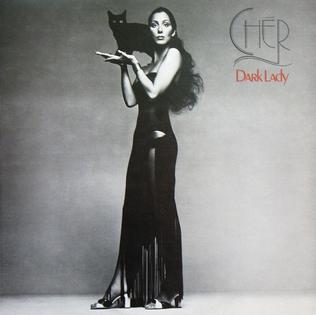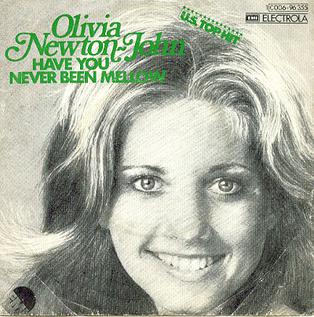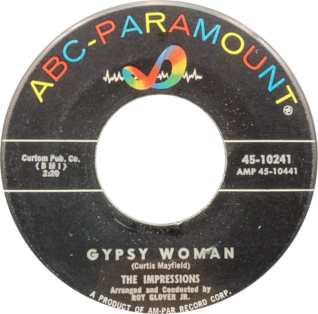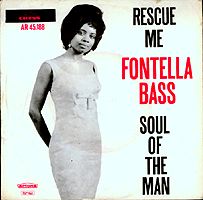
"Ain't Nothing Like the Real Thing" is a 1968 single released by American R&B/soul duo Marvin Gaye and Tammi Terrell, on the Tamla label in 1968. The B-side of the single is "Little Ole Boy, Little Ole Girl" from the duo's United LP. The first release off the duo's second album: You're All I Need, the song—written and produced by regular Gaye/Terrell collaborators Ashford & Simpson—became a hit within weeks of release eventually peaking at number eight on the US Billboard Hot 100 and number one on the Hot Soul Singles chart, the first of the duo's two number-one R&B hits. In the UK "Ain't Nothing Like the Real Thing" reached number 34.

Fontella Marie Bass was an American R&B and soul singer-songwriter best known for her number-one R&B hit "Rescue Me" in 1965. She has been nominated for a Grammy Award twice.

"The Way You Do the Things You Do" is a 1964 hit single by the Temptations for the Gordy (Motown) label. Written by Miracles members Smokey Robinson and Bobby Rogers, the single was the Temptations' first charting single on the Billboard Hot 100, peaking in the Top 20 at number eleven; it also went to number one on the Cash Box R&B chart. The song has been an American Top 40 hit in four successive decades, from the 1960s to the 1990s. A version by Hall & Oates featuring Temptation members Eddie Kendricks and David Ruffin was nominated for a Grammy Award in 1986. A cover version by British reggae band UB40 hit number six in the U.S. in 1990.

"Snowbird" is a song written by Canadian singer-songwriter Gene MacLellan. Though it has been recorded by many performers, it is best known through Anne Murray's 1969 recording, which—after appearing as an album track in mid-1969—was released as a single in mid-1970.

"Angel of the Morning" is a popular song written by Chip Taylor, originally recorded by Evie Sands but which first charted with a version by Merrilee Rush. The song has been covered by many artists including Chrissie Hynde, Dusty Springfield, P. P. Arnold, Connie Eaton, Mary Mason, Guys 'n' Dolls, Melba Montgomery, Olivia Newton-John and most recognizably by Juice Newton.

Dark Lady is the eleventh studio album by American singer-actress Cher, released in May 1974 by MCA. Cher again collaborated with Snuff Garrett as a record producer, and with Al Capps for the arrangements. Dark Lady was the third and final studio album for MCA. It was also the last record promoted on her successful The Sonny & Cher Comedy Hour show. After its release, the album received positive reviews from critics but, unlike her previous record produced by Garrett, was only moderately successful.

"Then Came You" is a 1974 song recorded by American soul singer Dionne Warwick and American R&B group The Spinners. It was credited to Dionne Warwicke and the Spinners. The track was written by Sherman Marshall and Phillip T. Pugh, and produced by Thom Bell.

"I'll Never Love This Way Again" is a song written and composed by English musician Richard Kerr and American lyricist Will Jennings, and first recorded by Kerr himself for his album Welcome to the Club as "I Know I'll Never Love This Way Again", released in November 1978. A version by Cheryl Ladd was released first on her self-titled album in July 1978. The song became a hit for American singer Dionne Warwick the following year, which was produced by her labelmate Barry Manilow for Warwick's Arista Records debut, Dionne. It was also recorded by British singer Cherrill Rae Yates before Warwick recorded and released her version of the song.

"Oh Girl" is a song written by Eugene Record and recorded by American soul vocal group the Chi-Lites, with Record on vocals and also producing. It was released as a single on Brunswick Records in 1972. Included on the group's 1972 album A Lonely Man, "Oh Girl" centers on a relationship on the verge of break-up.

"(Your Love Keeps Lifting Me) Higher and Higher" is an R&B song written by Gary Jackson, Raynard Miner, and Carl Smith. It was recorded by Jackie Wilson for his album Higher and Higher (1967), produced by Carl Davis, and became a Top 10 pop and number one R&B hit.

"Gettin' Ready for Love" is a 1977 hit song by Diana Ross. It was the first single from her Baby It's Me LP. The song was released on October 16, 1977 by Motown Records. It was written by Tom Snow and Franne Golde, and produced by Richard Perry. The song reached #27 on the U.S. Billboard Hot 100 and #29 in Canada. It also charted in the UK, reaching #23.

"Have You Never Been Mellow" is a song recorded by British-Australian singer Olivia Newton-John for her 1975 fifth studio album of the same name. Written and produced by John Farrar, the song was released as the lead single from the album in January 1975.

"More Love" is a 1967 hit single recorded by the American soul group The Miracles for Motown Records' Tamla label. The single, included on the group's 1967 album Make It Happen, later reissued in 1970 as The Tears of a Clown. Kim Carnes's 1980 cover of the song reached the Top 10 of Billboard's Adult Contemporary and Hot 100 charts.

"This Masquerade" is a song written by American singer and musician Leon Russell. It was originally recorded in 1972 by Russell for his album Carney and as a B-side for the album's hit single "Tight Rope". The song was then covered on Helen Reddy's 1972 album, I Am Woman. It was then recorded by American vocal duo, the Carpenters, for their 1973 album Now & Then and as the B-side of the Carpenters's single "Please Mr. Postman". Three years later, "This Masquerade" was recorded by American singer and guitarist George Benson, who released it on his 1976 album, Breezin'. Benson's version, featuring Jorge Dalto on piano, was released as a single and became the first big hit of his career.

"Show and Tell" is a popular song written by Jerry Fuller and first recorded by Johnny Mathis in 1972. This original version made it to #36 on the Easy Listening chart.

"Love Ballad" is a song by R&B/Funk band L.T.D. Jeffrey Osborne is the lead singer.

"Cupid" is a song by American singer Sam Cooke, released on May 16, 1961. It charted at number 17 on the Billboard Hot 100 and number 20 on the Hot R&B Sides chart; the track performed best in the United Kingdom, peaking at number seven on the UK Singles Chart. The song is featured on Cooke's greatest hits album, The Best of Sam Cooke (1962). Cooke's producers had asked him to write a song for a girl they had seen on a Perry Como TV show—but once they heard her sing, they kept "Cupid" for Cooke himself.

"Gypsy Woman" is a 1961 rhythm and blues song written by Curtis Mayfield and recorded by his group the Impressions. The group's first single following the departure of lead singer Jerry Butler, it reached No. 2 on the US Billboard R&B chart, No. 20 on the Billboard Hot 100 and number 17 on the Cash Box chart. It also appeared on the group's 1963 eponymous debut album. Joe Bataan (1967), Brian Hyland (1970), Bobby Womack (1985), Steve Marriott (1989), and Santana (1990) covered this song.

"Only Sixteen" is a song by American singer-songwriter Sam Cooke, released in May 1959. It was a top 15 hit on Billboard's Hot R&B Sides chart and also charted within the top 30 of the Billboard Hot 100 and the UK Singles Chart. In the UK it was covered, and taken to No. 1, by Craig Douglas.

"Stormy" is a hit song by the Classics IV released on their LP Mamas and Papas/Soul Train in 1968. It entered Billboard Magazine October 26, 1968, peaking at #5 on the U.S. Billboard Hot 100 chart and #26 Easy Listening. The final line of the chorus has the singer pleading to the girl: "Bring back that sunny day". The single, along with the prior release of "Spooky" and, soon after, the release of "Traces", formed a trio of solid hits for the band.




















